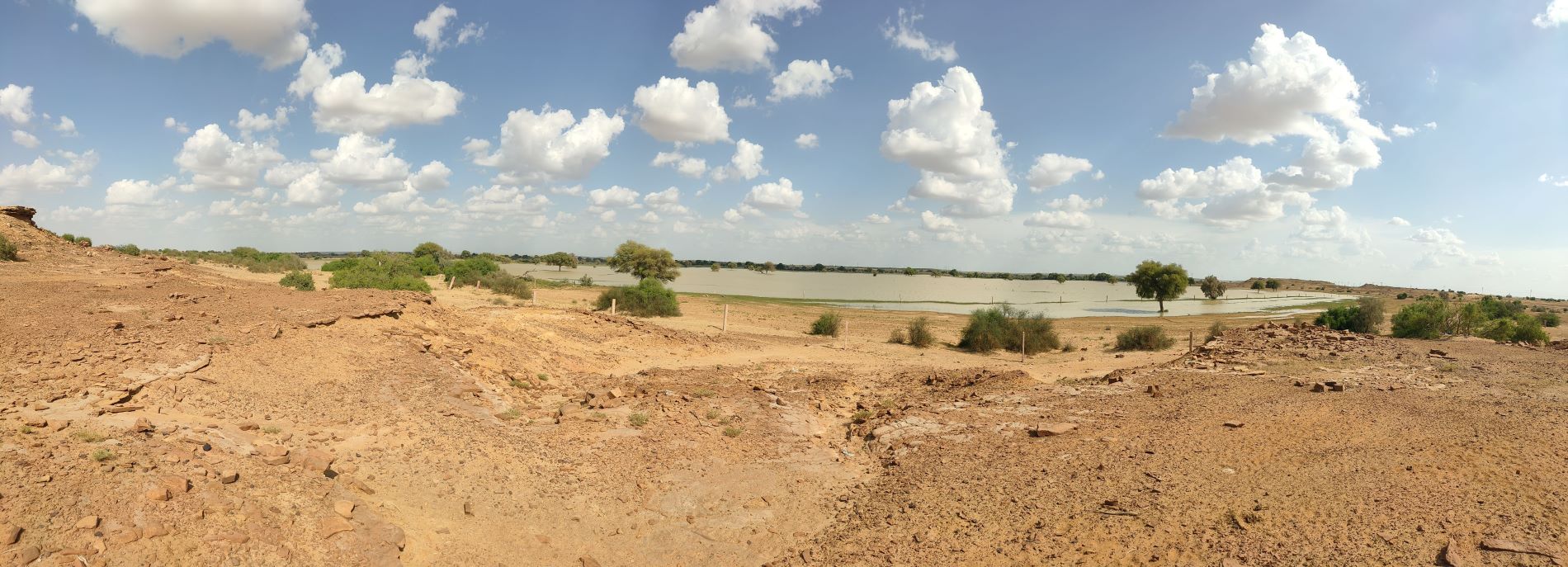

Downloads
DOI:
https://doi.org/10.58981/bluepapers.2024.2.11Published
Issue
Section
License
Copyright (c) 2024 Pierantonio La Vena, Bhatta Ram

This work is licensed under a Creative Commons Attribution 4.0 International License.
How to Cite
Keywords:
nature-based solutions, Indigenous technology, non-motorized irrigation, khadeen, water harvestingAbstract
The khadeen system of the Thar Desert, in Rajasthan, is an ancient technology that takes advantage of peculiar geohydrologic formations to create temporary lakes. A careful water management practice, the khadeen are an example of age-old methods of capturing and using seasonal runoff for agriculture, ensuring water access in arid regions. Khadeen have played a crucial role in supporting agricultural activities since the sixteenth century, offering impressive yields in a water-scarce environment. However, the enduring efficacy of khadeen faces contemporary threats, including mining encroachment, labor outmigration and road development. The delicate balance between preserving traditional knowledge and succumbing to external pressures poses challenges to their cultural, ecological and agricultural significance. This paper comments on the historical, hydrogeological and socioeconomic dimensions of khadeen, emphasizing the importance of their preservation in sustaining communities and ecosystems in the Thar Desert area.
References
Agarwal, Anil, and Sunita Narain. 2008. Dying Wisdom: Rise, Fall and Potential of India’s Traditional Water Harvesting Systems. New Delhi: Centre for Science and Environment.
Malik, Amir, and Novita Singh. 2023. “Resurrecting Khadeen, the Ancient Water Harvesting Structure of Rajasthan.” Mongabay, December 8. Accessed December 15, 2023. https://india.mongabay.com/2023/12/resurrecting-khadeen-the-ancient-water-harvesting-structure-of-rajasthan/.
Miśra, Anupam. 2001. The Radiant Raindrops of Rajasthan. New Delhi: Research Foundation for Science, Technology, and Ecology.
Rezavi, S. A. N. 1995. “Kuldhara in Jaisalmer State, Social and Economic Implications of the Remains of a Medieval Settlement.” Proceedings of the Indian History Congress 56, no. 1: 312–32.
Singh, Nandita, and Om Prakash Singh. 2018. “Khadin: A Nature-Based Solution for Water for Agriculture in the Great Indian Desert.” Millenium Water Story, October 15. Accessed December 16, 2023. https://millenniumwaterstory.org/Pages/Photostories/Water-and-Livelihood/Khadin-A-Nature-Based-Solution-for-Water-for-Agriculture-in-the-Great-Indian-Desert.html.


